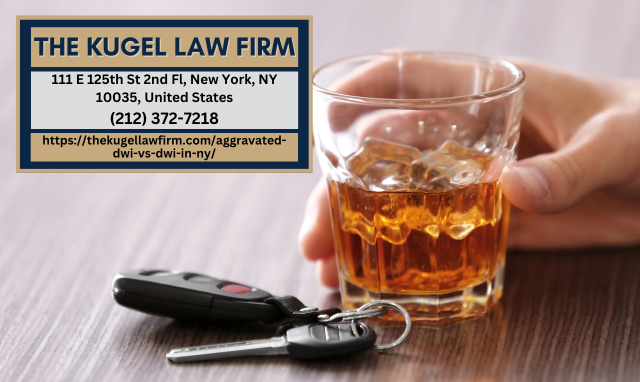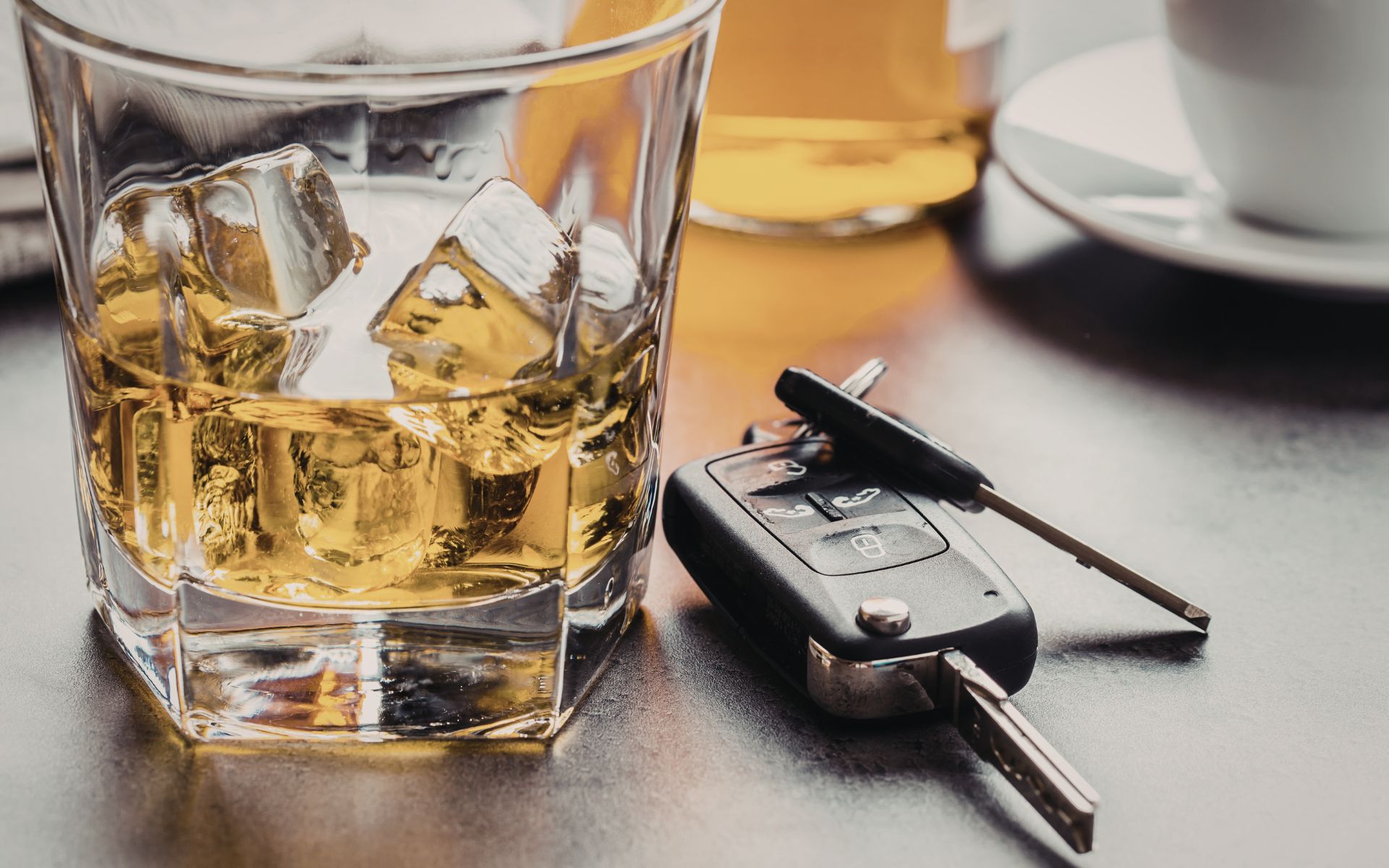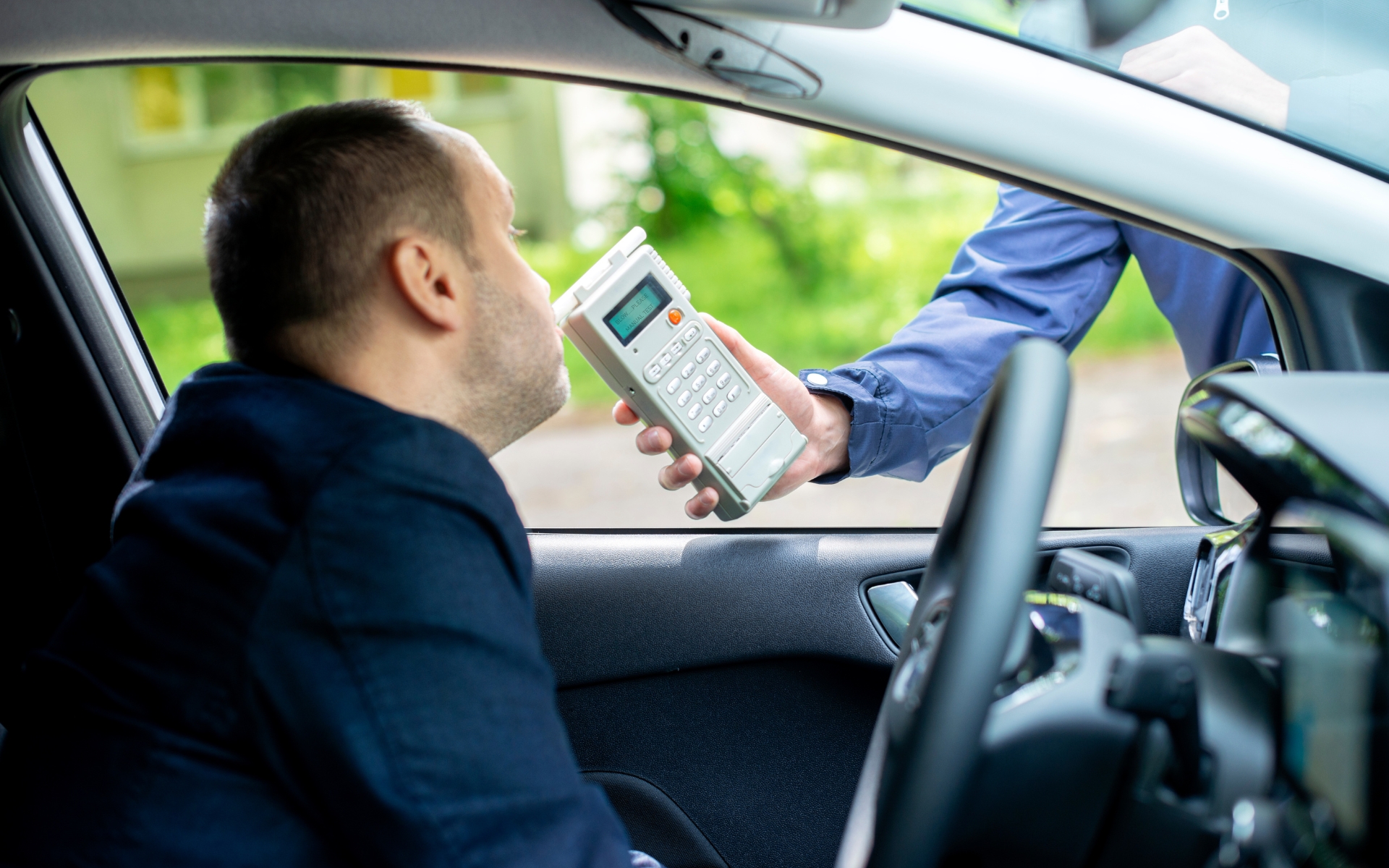Your BAC level is critical when it comes to DWI charges in New York. Once your BAC reaches 0.18% or higher, it’s no longer just a standard charge, instead, you may be charged with an aggravated DWI. This comes with harsher penalties, stricter requirements, and long-term consequences that can affect your life in serious ways. According to New York Vehicle and Traffic Law § 1192(2-a), driving with a BAC of 0.18% or higher is considered aggravated DWI because of the heightened risk such levels of intoxication pose to other drivers and pedestrians.
These charges can feel overwhelming, but you don’t have to face them alone. The Kugel Law Firm knows how critical it is to protect your rights and defend your future. A skilled New York DWI lawyer from our team can evaluate every detail of your case, challenge the evidence, and create a strategy tailored to your personal circumstances. Our team is dedicated to representing your best interests at every step.
Don’t let a high BAC define your future. If you’re facing aggravated DWI charges in New York, contact The Kugel Law Firm today at (212) 372-7218. We’ll walk you through your options and work toward a resolution that protects what matters most to you.
Why Blood Alcohol Content (BAC) Matters in DWI Cases
Your BAC is the key factor in determining the severity of your DWI charges. The amount of alcohol in your bloodstream is correlated by law enforcement to your level of impairment.
BAC isn’t just about how much you drink. Factors like your weight, how quickly you consumed alcohol, and even what you ate that day can all impact your BAC.
In New York, the law uses BAC as a clear-cut way to separate standard DWI cases from aggravated ones. If your BAC is over the threshold, the charges you face and the penalties you’ll have to deal with change dramatically.

How Does Aggravated DWI Differ From a Standard DWI?
The difference between a standard DWI and an aggravated DWI in New York comes down to the level of risk you pose to others. A standard DWI applies when your Blood Alcohol Content (BAC) is 0.08% or higher. This means you’ve reached the legal limit, and it’s enough to impair your judgment and reaction time behind the wheel.
The distinction between aggravated DWI charges and standard DWI charges in New York is all about the level of danger posed to others on the road. A higher Blood Alcohol Content (BAC) means greater impairment, which increases the risk of serious accidents.
At a BAC of 0.08% or above, you’re considered legally impaired, which can affect your ability to make safe driving decisions. But when your BAC reaches 0.18% or higher, more than double the legal limit, the law assumes you are a significant danger due to extreme impairment.
The higher BAC reflects not just more severe intoxication but also a greater threat to public safety, which is why the law treats these cases more seriously. The goal is to discourage drivers from reaching such high levels of intoxication before getting behind the wheel.
What Does a BAC of 0.18% or Higher Signify in New York?
If your BAC is 0.18% or higher, you’re looking at aggravated DWI charges, and the penalties are much tougher than for a standard DWI. The state takes these cases seriously because of the heightened risk to others on the road.
You could face:
- Higher fines: Expect to pay more than you would for a standard DWI.
- Longer license suspension: Your driving privileges could be revoked for a year or more.
- Ignition interlock device: Even first-time offenders with aggravated DWI are required to install this device, which prevents your car from starting if you’ve been drinking.
- Potential jail time: Aggravated DWI often comes with a real possibility of spending time behind bars.
These penalties are designed to discourage high levels of intoxication and protect everyone on the road. If your BAC hits 0.18% or higher, the law assumes you’re not just putting yourself at risk; you’re putting others in danger too.
New York DWI Attorney – Rachel Kugel

Rachel Kugel
Rachel Kugel is the founder of The Kugel Law Firm and a seasoned New York DWI attorney with more than two decades of experience. She has defended hundreds of clients charged with driving while intoxicated, earning a reputation for providing personalized, judgment-free representation. Rachel’s goal is to help clients avoid harsh penalties, protect their driving privileges, and secure the best possible outcome for their cases.
As a member of the National College of DUI Defense and the National Association of Criminal Defense Lawyers, Rachel stays at the forefront of DWI defense strategies. Her work has also earned recognition in the media, with appearances on CNN, FOX News, and CourtTV. She has received multiple Avvo Client’s Choice Awards and has been named a Super Lawyers Rising Star. Rachel prioritizes accessibility and transparency, offering free strategy sessions to help clients take control of their cases.
Legal Consequences of an Aggravated DWI Charge in New York
When you’re facing charges of aggravated DWI, the law doesn’t just stop at fines or temporary inconvenience; it can impact your daily life, your record, and even your ability to work. Here’s what you need to know about the consequences if your BAC is 0.18% or higher.
Fines, Jail Time, and License Revocation
If you’re charged with an aggravated DWI, the penalties hit harder right from the start. New York treats this as a serious offense because of the elevated danger it represents.
- Fines: For a first offense, you’ll likely face fines ranging from $1,000 to $2,500. These are significantly higher than for a standard DWI.
- Jail time: You could spend up to one year in jail for a first offense. It might not always happen, but the possibility is real.
- License revocation: Your license could be revoked for at least one year, making it much harder to get around, even for work or family obligations.
Being convicted of aggravated DWI in New York can bring additional consequences that could impact your professional and personal life.
Long-Term Impact on Driving Records and Insurance Rates
An aggravated DWI isn’t something that goes away quickly. It stays on your driving record for years, and that record is something insurance companies pay close attention to.
- Driving record: An aggravated DWI conviction will stick with you for 10 years in New York. That means every time someone looks up your record, they’ll see it.
- Insurance rates: Your insurance premiums can skyrocket. Providers see an aggravated DWI as a red flag, and many may even refuse to cover you altogether. Those that do will charge significantly higher rates to offset the perceived risk.
The financial hit from higher insurance rates can last for years, making it harder to recover even after you’ve paid your fines and served your penalties.
How an Aggravated DWI Affects Professional Licenses
If you hold a professional license in New York, an aggravated DWI can jeopardize your career. Certain professions, like healthcare providers, teachers, and commercial drivers, are held to higher standards, and a conviction can result in severe professional consequences.
- Commercial drivers: If you hold a Commercial Driver’s License (CDL), the stakes are even higher. An aggravated DWI often means a longer suspension period or even permanent disqualification from driving commercially.
- Licensed professionals: Jobs that require state licensing, such as nurses, lawyers, or teachers, may require you to report a conviction. This could lead to disciplinary action, suspension, or even the loss of your license.
The penalties for aggravated DWI go beyond fines and court appearances. A conviction can affect your ability to drive, your financial stability, and even your career. The state takes these charges seriously, and the consequences reflect that.
What are the Differences Between Aggravated DWI and Standard DWI Penalties?
One of the first things you’ll notice about aggravated DWI penalties is how much more they can cost you:
- Fines: For a standard DWI, fines usually range from $500 to $1,000. But with an aggravated DWI, you’re looking at fines starting at $1,000 and going up to $2,500.
- License suspension: A standard DWI can lead to a license suspension of 6 months to 1 year. For an aggravated DWI, your license will be revoked for at least 1 year, even if it’s your first offense.
These harsher penalties reflect how seriously the state takes cases involving high BAC levels. Losing your license for a full year can make things like commuting to work or running errands much more complicated, so the stakes are high.
Mandatory Ignition Interlock Devices for Aggravated DWI
If you’re convicted of an aggravated DWI, you’ll likely be required to install an ignition interlock device (IID) on your car. This device acts as a personal breathalyzer that prevents your vehicle from starting if it detects alcohol on your breath.
- Who pays for it? You’ll be responsible for the installation and monthly maintenance fees, which can add up quickly.
- How long is it required? For aggravated DWI, the IID is typically required for at least 12 months, even for first-time offenders.
This isn’t something you can avoid if it’s part of your sentence. It’s designed to hold you accountable and prevent further offenses while you’re on the road. As such, further violations or attempts to circumvent the IID can result in additional charges and penalties.
Court-Ordered Alcohol Counseling and Treatment Programs
Aggravated DWI convictions often come with mandatory alcohol counseling or treatment programs. These programs are intended to address the underlying issue of alcohol misuse and reduce the likelihood of repeat offenses.
- Counseling sessions: You may need to attend regular sessions with a licensed counselor to evaluate your relationship with alcohol.
- Treatment requirements: In some cases, you might be required to participate in longer-term treatment programs, depending on the court’s evaluation of your case.
While these programs can feel like an inconvenience, they’re often seen as an opportunity to reflect on your choices and make changes moving forward.
The penalties for an aggravated DWI go far beyond those for a standard DWI. The fines are steeper and the license suspensions last longer. These differences are meant to discourage high-BAC driving and emphasize the seriousness of the offense.
Defending Against Aggravated DWI Charges in New York
Just because you’re charged doesn’t automatically mean you’ll be convicted. There are legal defenses that can help reduce the penalties you face—or even get the charges dismissed altogether. Let’s take a closer look at some of the ways you can fight an aggravated DWI charge.
What are Some Common Legal Defenses in Aggravated DWI Cases?
Even when the evidence against you seems strong, there are often factors that can be challenged. Some common defenses include:
- Improper stop by police: If the officer didn’t have a valid reason to pull you over, any evidence gathered afterward might be inadmissible in court.
- Faulty breathalyzer results: Breathalyzers aren’t perfect. If the device wasn’t properly calibrated or maintained, the BAC reading could be inaccurate.
- Medical conditions: Certain medical issues, like acid reflux or diabetes, can lead to falsely high BAC results.
- Violation of your rights: If the police didn’t follow proper procedures during your arrest, such as failing to read your Miranda rights, parts of the case might be thrown out.
A good defense starts with looking at every detail of your case. Sometimes, small mistakes made by law enforcement can make a big difference in court.
| Defense | Explanation | Example |
|---|---|---|
| Improper stop by police | The officer must have a valid reason to pull you over; without it, evidence may be thrown out. | No clear sign of traffic violation before stop |
| Faulty breathalyzer results | Breathalyzers must be properly calibrated and maintained. Errors can lead to false readings. | Device not tested or maintained correctly |
| Medical conditions | Health issues like acid reflux or diabetes can affect BAC readings. | A medical expert can testify to explain false results |
| Violation of your rights | Police must follow proper procedures and respect your rights. | Failure to read Miranda rights or illegal search |
Challenging BAC Evidence in Court
Since aggravated DWI charges are based on having a BAC of 0.18% or higher, the accuracy of that number is critical. If there’s any doubt about the validity of the BAC evidence, it can weaken the case against you.
- Breath tests: These are commonly used, but they rely on machines that need regular maintenance. If there’s no proof that the machine was working or maintained properly, the results can be questioned.
- Blood tests: While more accurate than breath tests, blood samples must be handled carefully. Any errors in storage, transportation, or testing can compromise the results.
- Timing matters: Your BAC can rise over time. If you were tested long after you were pulled over, your BAC at the time of driving might have been below the legal threshold.
Challenging the BAC evidence can sometimes be enough to reduce your charge from aggravated DWI to a standard DWI or even get the case dismissed if the evidence is unreliable.
Why Hiring an Experienced DWI Attorney is Essential
When facing aggravated DWI charges, having the right legal support is key. An attorney who knows how New York’s DWI laws work can help you build a strong defense, protect your rights, and guide you through the legal process.
- Case review: An attorney can go through the details of your arrest and identify weaknesses in the prosecution’s case.
- Negotiating with prosecutors: In some cases, an attorney can negotiate to lower your charge or reduce the penalties you’re facing.
- Court representation: If your case goes to trial, having someone who knows the legal system on your side can make all the difference.
An aggravated DWI charge is serious, but it doesn’t mean your future is set in stone. With the right approach, you can challenge the evidence and fight for a better outcome.
How Aggravated DWI Charges Can Be Reduced or Dismissed
Being charged with an aggravated DWI in New York doesn’t mean you’re out of options. The legal system allows room for negotiations and challenges, and there are ways to push for reduced penalties or even a complete dismissal in certain situations. Let’s go over some of the ways your case might be improved.
Plea Bargaining Options for Aggravated DWI Cases
Plea bargaining is one of the most common ways to resolve aggravated DWI cases. This involves negotiating with the prosecutor to reduce the severity of the charges you’re facing.
- Reduction to a standard DWI: In some cases, the prosecutor might agree to lower your charge from aggravated DWI to a standard DWI. This can make a big difference in the penalties you face, including lower fines, less time without a license, and no mandatory ignition interlock device.
- Alternative plea agreements: Another possibility is pleading guilty to a lesser offense, like Driving While Ability Impaired (DWAI), which carries lighter penalties and won’t stay on your record as long.
Prosecutors are sometimes open to plea deals if you have a clean driving record, show genuine remorse, or agree to take steps like attending an alcohol treatment program.
How Do Mitigating Circumstances Reduce Penalties?
Mitigating circumstances are facts about your case or your personal situation that can make a judge or prosecutor more lenient. These details can help present you as someone who made a mistake rather than a reckless driver.
- First-time offense: If you’ve never been charged with a DWI before, this can work in your favor. Courts tend to be less harsh with first-time offenders.
- Personal hardships: Explaining how a harsh penalty would severely affect your ability to work, care for your family, or meet other responsibilities might influence the outcome.
- Voluntary actions: Taking proactive steps, like completing an alcohol counseling program or community service before your case is resolved, shows the court that you’re taking responsibility.
While mitigating circumstances won’t always erase the charges, they can lead to reduced penalties or a softer sentence.
While aggravated DWI charges are serious, there are ways to fight back and improve your situation. The key is to stay proactive and explore every possible option to protect your future.
Protect Your Rights with the Right Legal Team
At The Kugel Law Firm, we are committed to providing quality legal assistance to defend the rights of good people charged with DWI and represent their best interests. We take the time to understand your situation, review the evidence, and fight for the best possible outcome for you. Don’t let one mistake define your future.
Call The Kugel Law Firm today at (212) 372-7218 to discuss your case and take the first step toward protecting your rights and getting your life back on track.



